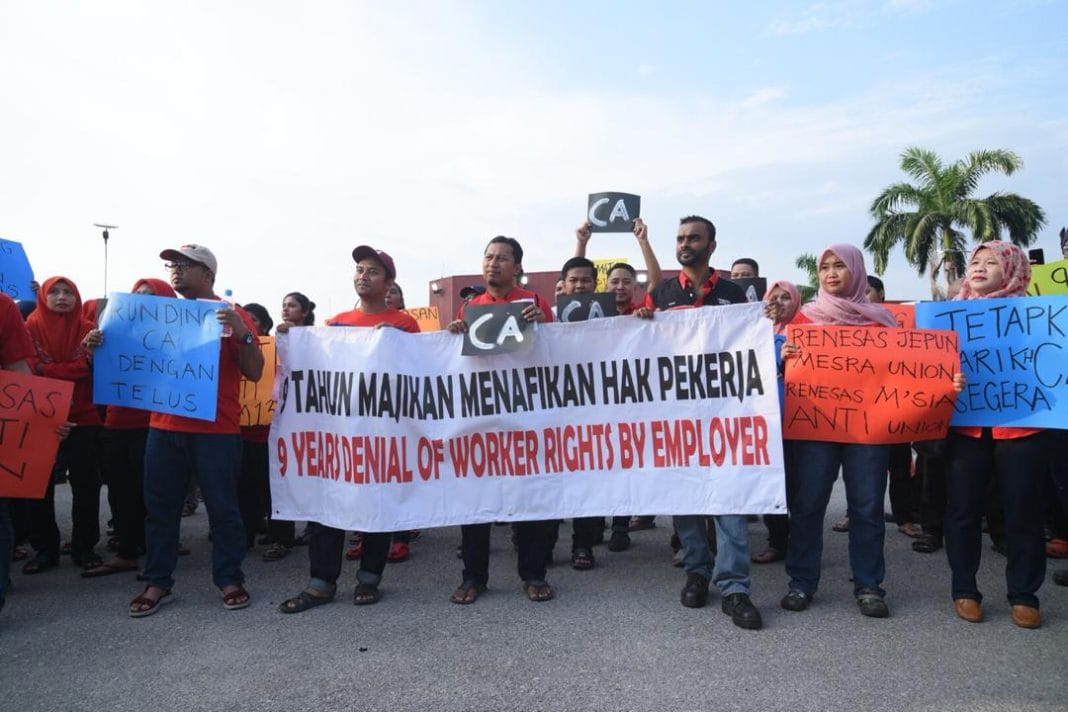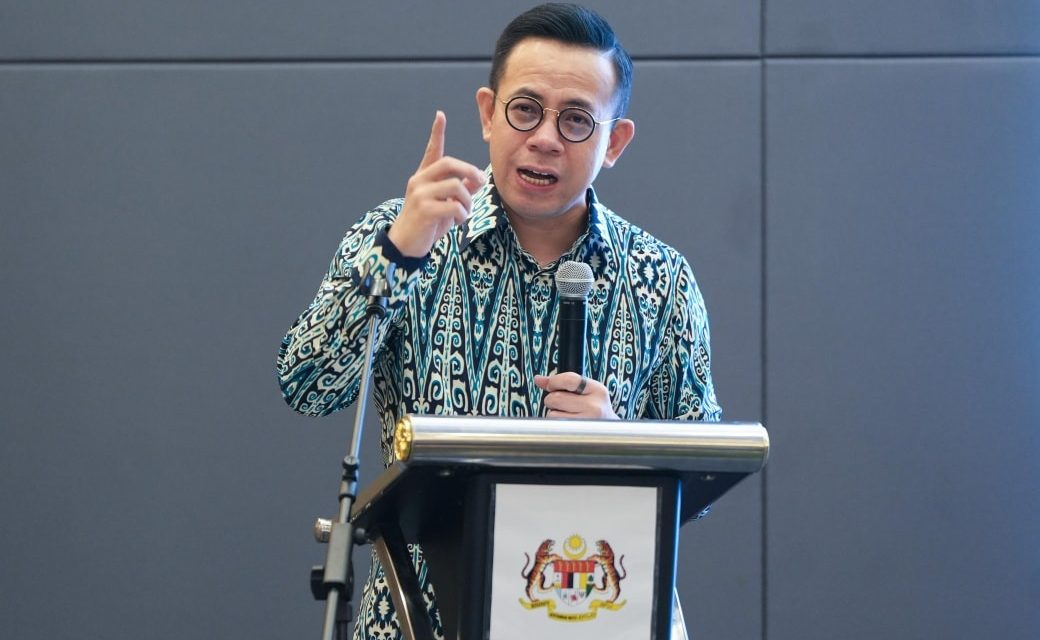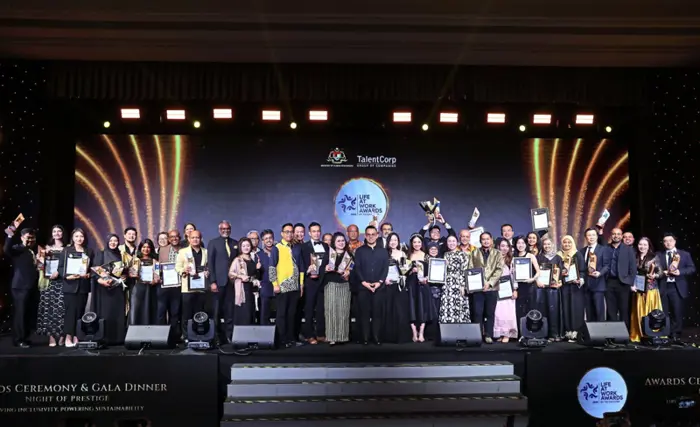
Kuala Lumpur: Malaysia is firmly on track to building a more progressive and equitable labour market.
2025 marks the implementation of two key initiatives – the new Minimum Wage Order (MWO) and the Progressive Wage Policy (PWP) – aimed at strengthening workers’ rights, boosting labour productivity and fostering a more inclusive and sustainable national economy.
Progressive wages
The MWO came into effect on Feb 1 for employers with five or more employees, as well as for employers in the professional sector regardless of employee count.
“For employers with fewer than five employees, the effective date is Aug 1, a move that will ensure workers receive a minimum basic wage of RM1,700 per month, in line with the rising cost of living,” says Human Resources Minister Steven Sim recently.
“The government introduced PWP as a comprehensive, long-term measure that takes a productivity-based approach. It links wage growth to skills development and employee contributions,” he continues.
Formally implemented in January this year, the policy follows a pilot phase held between June and August last year. This shows a shift in strategy during the 12th Malaysia Plan Mid-Term Review, to raise wages and ensure a balanced income distribution.
Opportunity in both ways
The PWP is guided by three main principles: voluntary participation, incentive-based structure and a strong link to productivity.
Registered local companies will receive monthly cash incentives up to RM300 per employee once registered until December 2027, depending on the employee category and wage increment achieved. Entry-level workers will receive a maximum incentive of RM200 per month.
If the wage gap between the employee’s current salary and the entry-level wage specified in the PWP Implementation Guideline exceeds RM200 per month, employers must raise wages by at least RM200. If the gap is less than RM200, the wage increase must be aligned with the guideline’s recommendation.
Non-entry level employees can fetch incentives up to RM300, based on their annual wage increment achieved. Employers must meet minimum 21 hours per year training requirements as one of the prerequisites for PWP incentive claims.
However, 21 hours training that were not completed in 2025 can carry forward until December 2026. This allows employees to complete a minimum of 42 hours in 2026, or have undergone Recognition of Prior Achievement (RPA).
In 2027, employees should have a minimum of 21 hours, or completion of RPA, which allows them to upskill and become more competitive. Employers will benefit from a more capable and productive workforce.
Strategic investment
“PWP represents a smart long-term investment for employers. Besides the financial incentives, it helps companies boost operational efficiency by building a more skilled and motivated workforce,” explains Sim.
Participating companies will also be recognised as Progressive Wage Employers – a status that enhances the organisation’s credibility and reputation among clients, employees and industry peers.
“This will be vital for local businesses and micro, small and medium enterprises (MSMEs), which make up 97% of the country’s industrial landscape, Through PWP, these businesses can strengthen their competitiveness while contributing to a more resilient and sustainable labour market,” he elaborates.
Contributing to nation’s growth
In the macroeconomic viewpoint, PWP is expected to contribute significantly to national growth. Higher household incomes will stimulate domestic demand, which supports GDP growth.
A fairer wage structure will attract higher-quality investments and reduce reliance on low-paid foreign labour. With an initial RM200mil allocation under Budget 2025, the PWP aims to benefit 50,000 workers in its initial phase.
This could make Malaysia a high-income nation with the workforce as a key driver of progress, and toward a more progressive wage system.
With fairer wages, the people’s purchasing power increases, companies become more competitive and result in a more balanced, inclusive national economy.
It will elevate Malaysia to the ranks of high-income nations that prioritise dignity, values and quality of life. As of July 2025, a total of 173,325 individuals have registered for the MADANI Workers’ Card, with 147,534 completed applications submitted.
And so far, 11,587 workers have successfully received their digital cards, while the rest are currently undergoing the verification process by their respective unions.
Building the future today
PWP also sends out a clear message that Malaysia’s economic growth must be underpinned by a fair and forward-looking wage system, not just minimum wage compliance or periodic salary adjustments.
“Progressive Wages, Thriving Workers” is a call to value labour, not just as a source of productivity, but as a national asset for advancement.
“PWP is an opportunity for Malaysia to build a fairer work environment where businesses can grow alongside workers, and the economy to be more competitive,” stresses Sim.
“We encourage employers to join PWP, not just a social responsibility move, but a smart business strategy. Employees can also take this chance to embrace the upskilling opportunities provided.
“Only through strong collaboration between the public sector, the private and the workforce can the MADANI aspiration – of a values-based, socially just economy – be fully realised,” he says.
Sim adds that a job that rewards fair wages restores not only income, but dignity and recognition for every worker.

The Star. (2025, July 18). Strengthening workers’ rights, enhancing productivity. The Star. Retrieved from https://www.thestar.com.my/news/nation/2025/07/18/strengthening-workers-rights-enhancing-productivity
- PERKESO reforms ensure comprehensive protection for all workers, says HR Minister
 KUALA LUMPUR: The Human Resources Ministry, through the Social Security Organisation (PERKESO), continues to undertake comprehensive reforms to strengthen social protection for all contributors, including gig workers and foreign workers, says Steven Sim Chee Keong. The Human Resources Minister said that 10 major reforms have been implemented over the past two years to provide more […]
KUALA LUMPUR: The Human Resources Ministry, through the Social Security Organisation (PERKESO), continues to undertake comprehensive reforms to strengthen social protection for all contributors, including gig workers and foreign workers, says Steven Sim Chee Keong. The Human Resources Minister said that 10 major reforms have been implemented over the past two years to provide more […] - KESUMA’s drive for fair work and shared progress
 The LIFE AT WORK Awards (LAWA) hosted by Talent Corporation Malaysia Bhd (TalentCorp), celebrates its 10th edition, solidifying its influence as a platform that drives transformation in diversity, equity and inclusion (DEI) in Malaysian workspaces. With concerns regarding human capital rising amid the ubiquity of artificial intelligence (AI), it is crucial now more than ever […]
The LIFE AT WORK Awards (LAWA) hosted by Talent Corporation Malaysia Bhd (TalentCorp), celebrates its 10th edition, solidifying its influence as a platform that drives transformation in diversity, equity and inclusion (DEI) in Malaysian workspaces. With concerns regarding human capital rising amid the ubiquity of artificial intelligence (AI), it is crucial now more than ever […] - ‘Many employers not making mandatory Perkeso, EPF contributions’
 KLANG: The Human Resources Ministry has detected a worrying number of employers still refusing to register or make mandatory contributions to the Social Security Organisation (Perkeso) and Employees Provident Fund (EPF) for their workers. The ministry stressed that such actions violated employees’ rights and denied them basic protection. Deputy Human Resources Minister Datuk Seri Abdul […]
KLANG: The Human Resources Ministry has detected a worrying number of employers still refusing to register or make mandatory contributions to the Social Security Organisation (Perkeso) and Employees Provident Fund (EPF) for their workers. The ministry stressed that such actions violated employees’ rights and denied them basic protection. Deputy Human Resources Minister Datuk Seri Abdul […] - Nearly 500 labour law breach cases detected
 KLANG: Almost 500 investigation papers have been opened against employers for breaches of labour laws as of Nov 1, says Deputy Human Resources Minister Datuk Seri Abdul Rahman Mohamad. Among the most common labour law offences are employers’ failure to make the mandatory contributions to the Social Security Organisation (PERKESO) or the Employees Provident Fund […]
KLANG: Almost 500 investigation papers have been opened against employers for breaches of labour laws as of Nov 1, says Deputy Human Resources Minister Datuk Seri Abdul Rahman Mohamad. Among the most common labour law offences are employers’ failure to make the mandatory contributions to the Social Security Organisation (PERKESO) or the Employees Provident Fund […] - MOHR Won’t Tolerate Companies Preventing Workers From Forming Union
 The Industrial Relations Department of the Human Resources Ministry (MOHR) has reaffirmed its commitment to safeguarding workers’ rights after a gathering and memorandum submission by several labour unions concerning alleged union-busting practices. The department emphasised that it respects the constitutional right to peaceful assembly and freedom of speech, while reiterating that workers’ rights to form […]
The Industrial Relations Department of the Human Resources Ministry (MOHR) has reaffirmed its commitment to safeguarding workers’ rights after a gathering and memorandum submission by several labour unions concerning alleged union-busting practices. The department emphasised that it respects the constitutional right to peaceful assembly and freedom of speech, while reiterating that workers’ rights to form […] - Court Orders Employer To Pay 93 Migrant Workers Outstanding Wages
 Human Resources Minister Steven Sim Chee Keong has welcomed the Shah Alam High Court’s decision to uphold an earlier ruling by the Labour Court, ordering an employer to pay outstanding wages to 93 migrant workers who were left without work upon arrival in Malaysia. The High Court on 31 October 2025 affirmed the Labour Court’s […]
Human Resources Minister Steven Sim Chee Keong has welcomed the Shah Alam High Court’s decision to uphold an earlier ruling by the Labour Court, ordering an employer to pay outstanding wages to 93 migrant workers who were left without work upon arrival in Malaysia. The High Court on 31 October 2025 affirmed the Labour Court’s […] - No tolerance for employers who withhold wages, says HR Minister
 The Ministry of Human Resources (KESUMA) has urged all employers to take heed of the recent Shah Alam High Court ruling which upheld a decision in favour of 93 migrant workers in an unpaid wage case. Human Resources Minister Steven Sim Chee Keong said the Oct 31 decision sends a strong message that failure to […]
The Ministry of Human Resources (KESUMA) has urged all employers to take heed of the recent Shah Alam High Court ruling which upheld a decision in favour of 93 migrant workers in an unpaid wage case. Human Resources Minister Steven Sim Chee Keong said the Oct 31 decision sends a strong message that failure to […] - THE HEART WORK REVOLUTION
 TEN years after its inception, the Life at Work Awards (LAWA) 2025 marked not just a milestone but a movement that celebrates how Malaysia’s workplaces are evolving with compassion, flexibility and purpose. Hosted by Talent Corporation Malaysia Bhd (TalentCorp), the gala night honoured organisations leading the way in shaping a fairer, more progressive, human-centred world […]
TEN years after its inception, the Life at Work Awards (LAWA) 2025 marked not just a milestone but a movement that celebrates how Malaysia’s workplaces are evolving with compassion, flexibility and purpose. Hosted by Talent Corporation Malaysia Bhd (TalentCorp), the gala night honoured organisations leading the way in shaping a fairer, more progressive, human-centred world […] - Group wants clear framework, pilot projects before expanding EIS to gig workers
 PETALING JAYA: The Malaysian Industrial, Commercial and Service Employers Association (Micsea) has called on the government to set a clear policy framework and run pilot projects before expanding the Employment Insurance System (EIS) to gig and platform-based workers. The association said the plan, announced by human resources minister Steven Sim in the Dewan Rakyat on […]
PETALING JAYA: The Malaysian Industrial, Commercial and Service Employers Association (Micsea) has called on the government to set a clear policy framework and run pilot projects before expanding the Employment Insurance System (EIS) to gig and platform-based workers. The association said the plan, announced by human resources minister Steven Sim in the Dewan Rakyat on […] - Employer group seeks clarity on foreign worker pay rules after court ruling
 KUALA LUMPUR (Nov 3): The Malaysian Industrial Commercial & Service Employers Association (MICSEA) is calling on the Ministry of Human Resources (MOHR) to issue clear and structured guidelines on wage payment timelines for foreign workers, following a recent court ruling that employers must pay wages from the moment these workers arrive in Malaysia. The call […]
KUALA LUMPUR (Nov 3): The Malaysian Industrial Commercial & Service Employers Association (MICSEA) is calling on the Ministry of Human Resources (MOHR) to issue clear and structured guidelines on wage payment timelines for foreign workers, following a recent court ruling that employers must pay wages from the moment these workers arrive in Malaysia. The call […]
